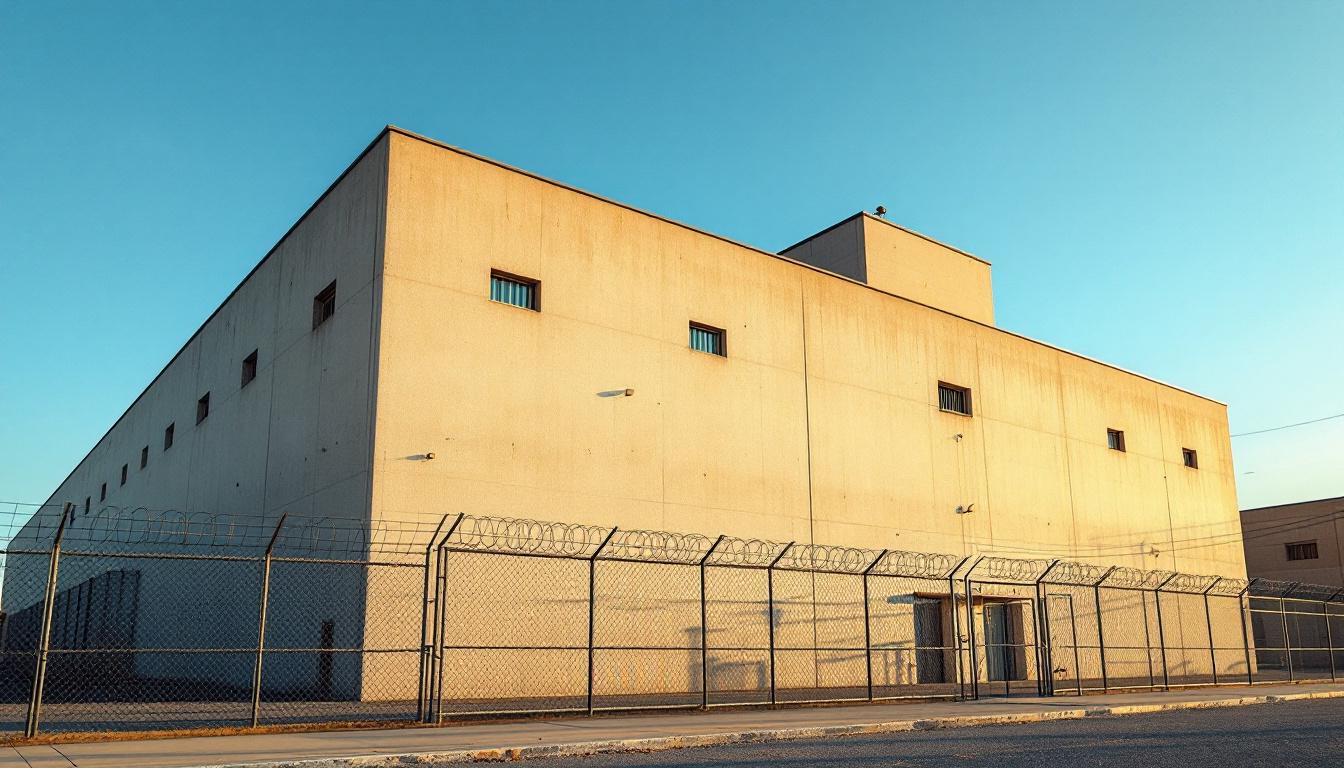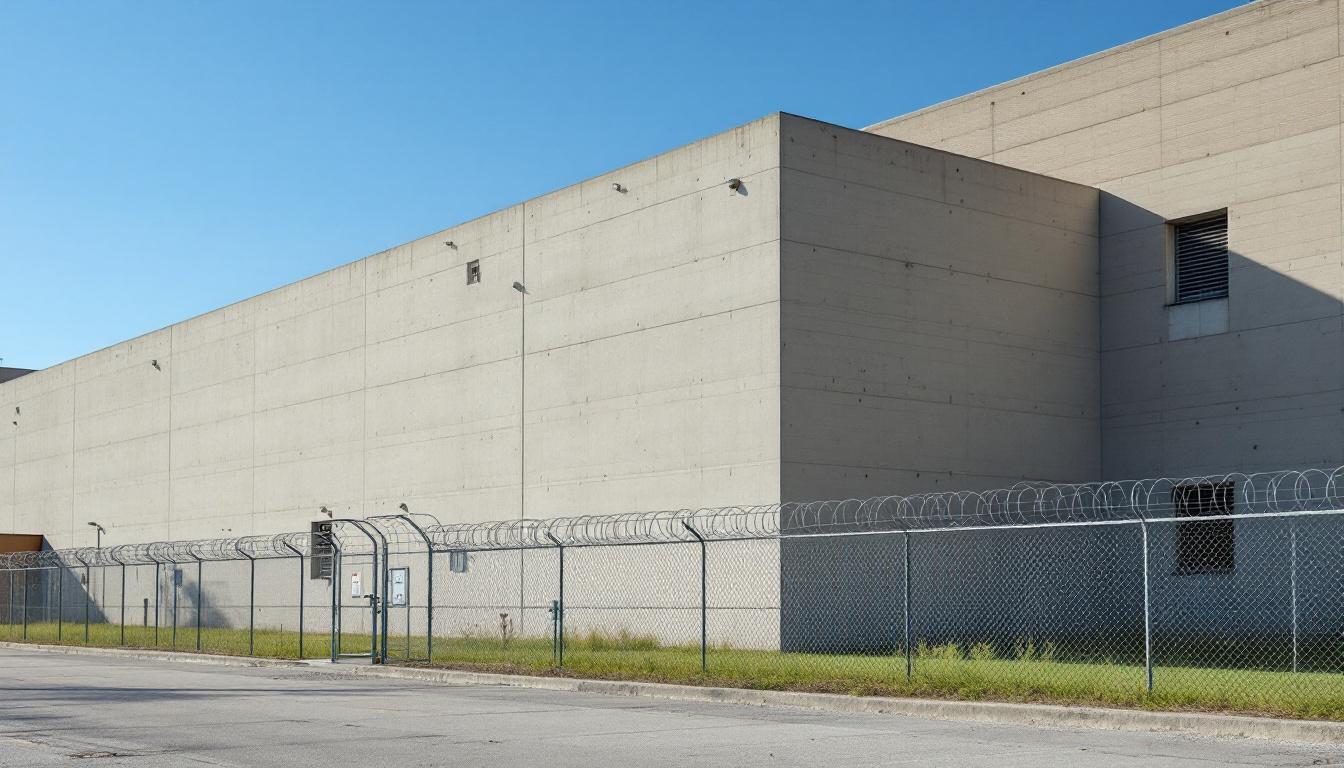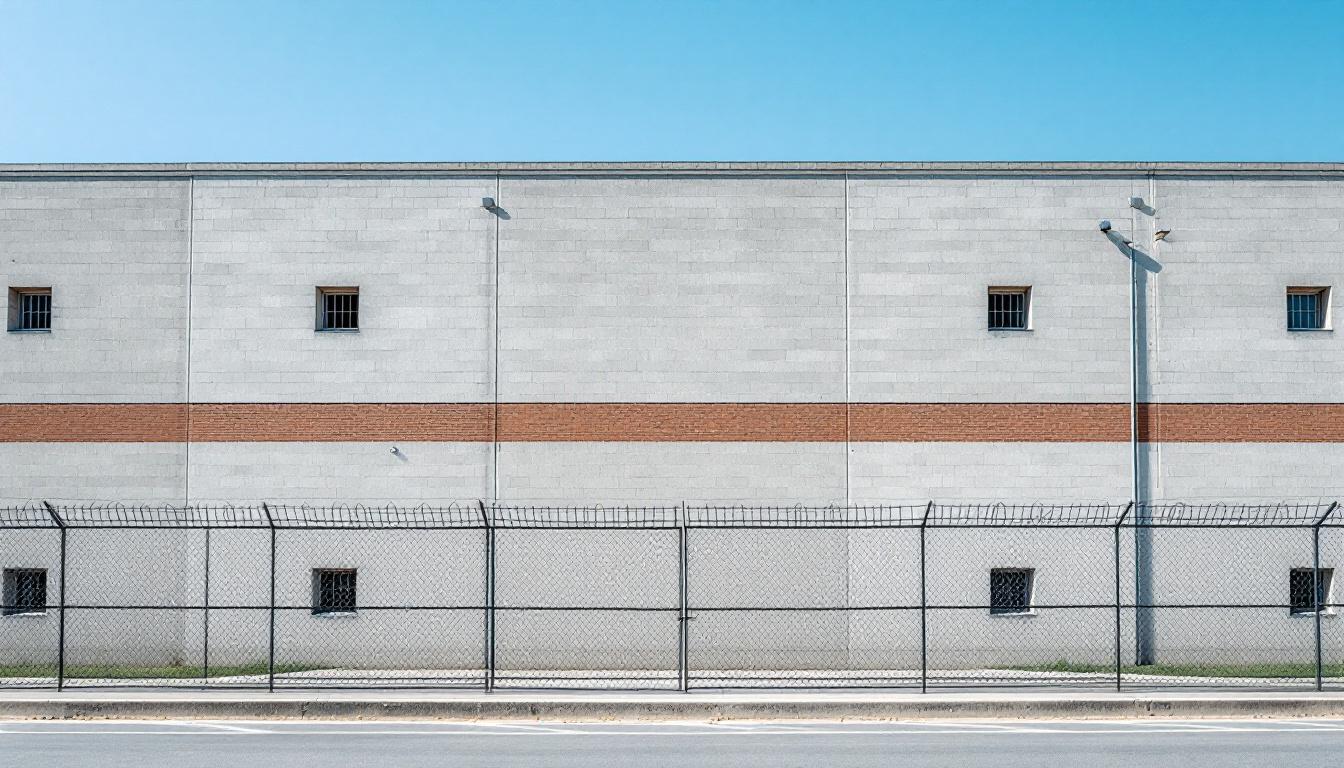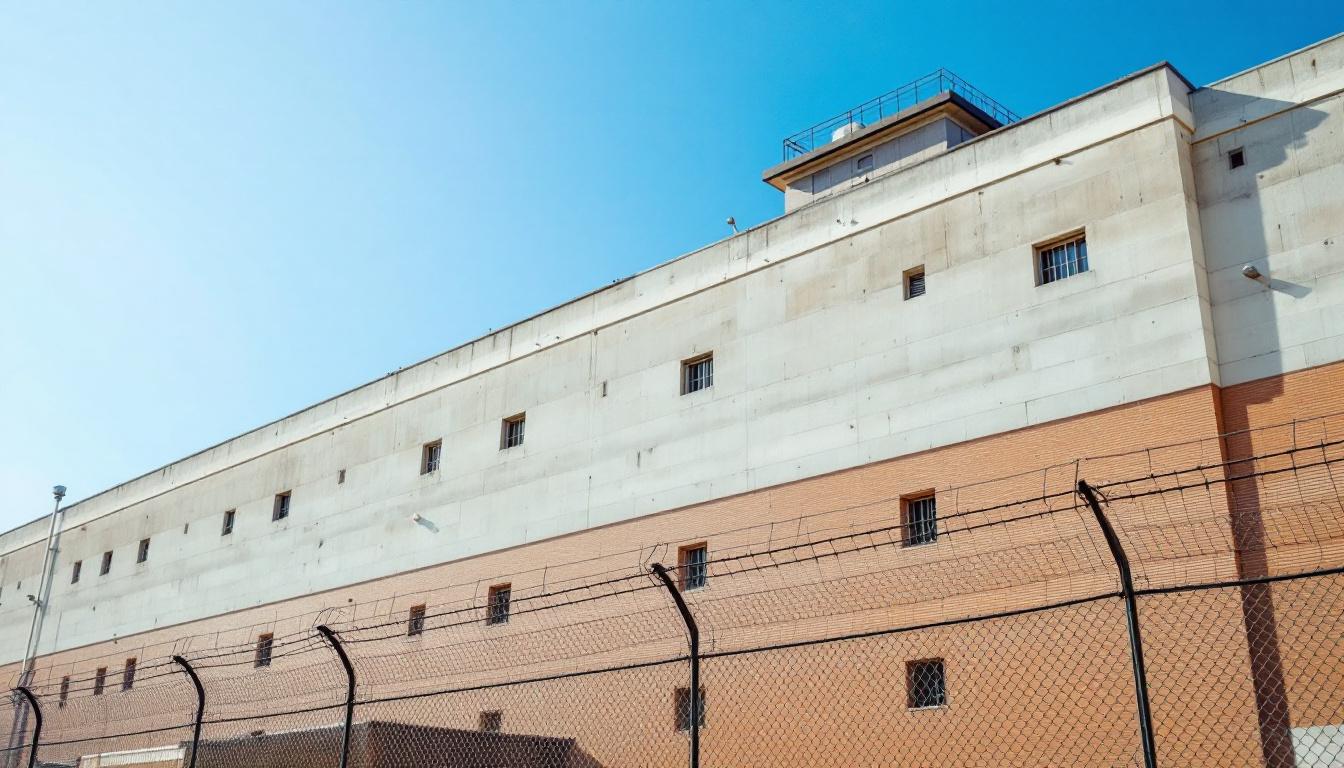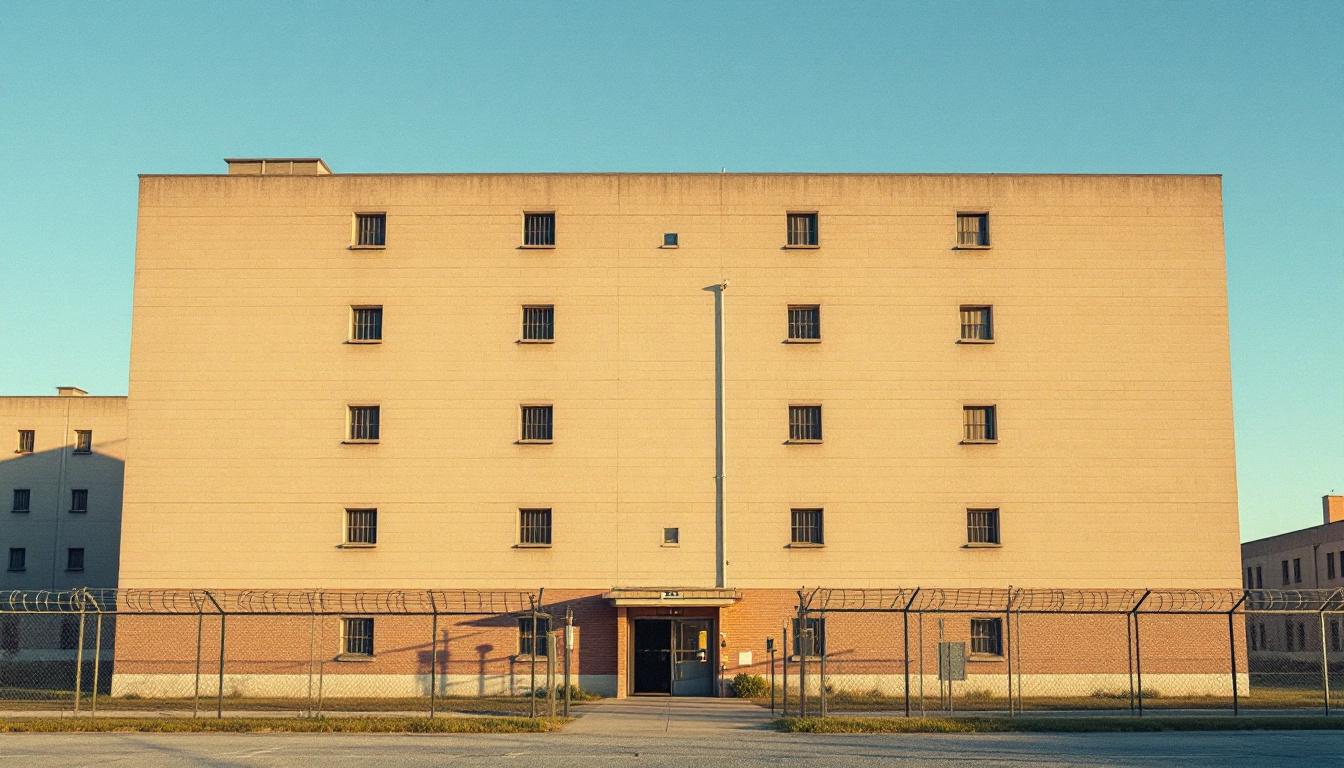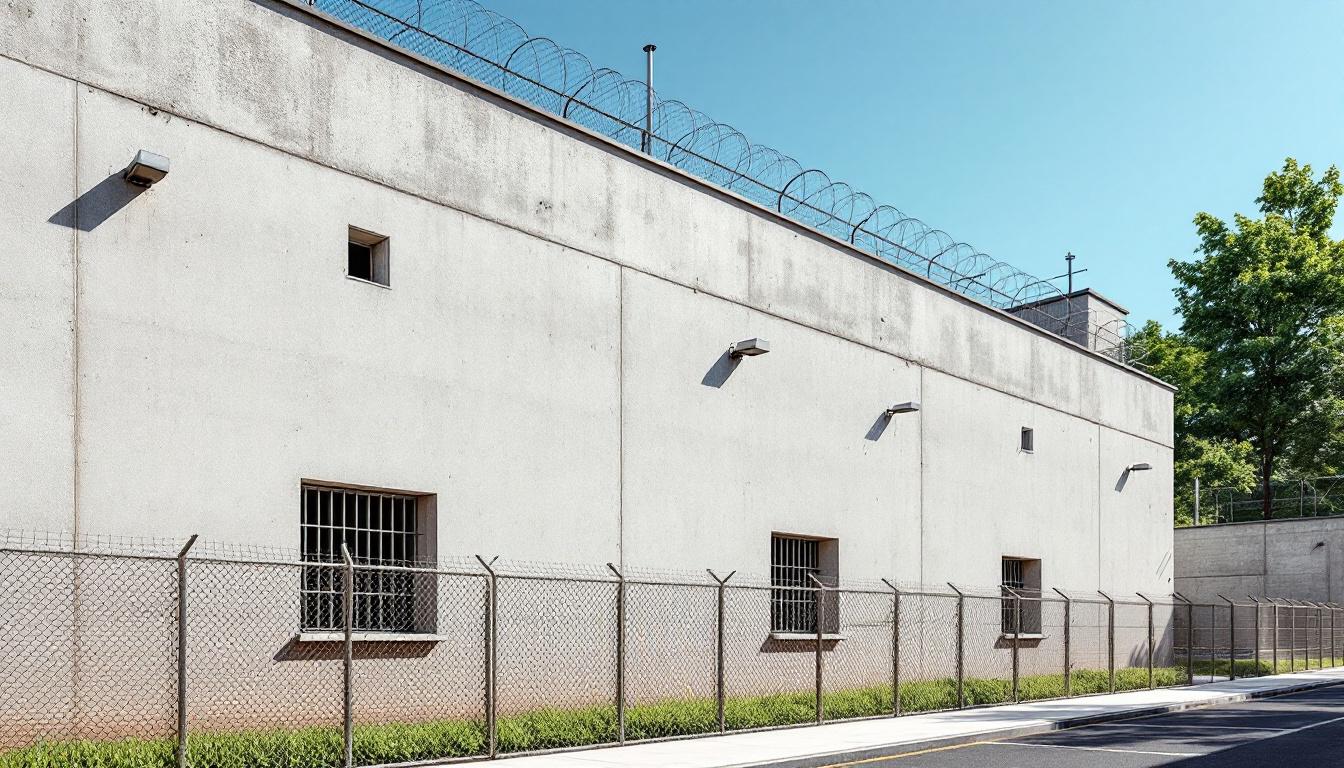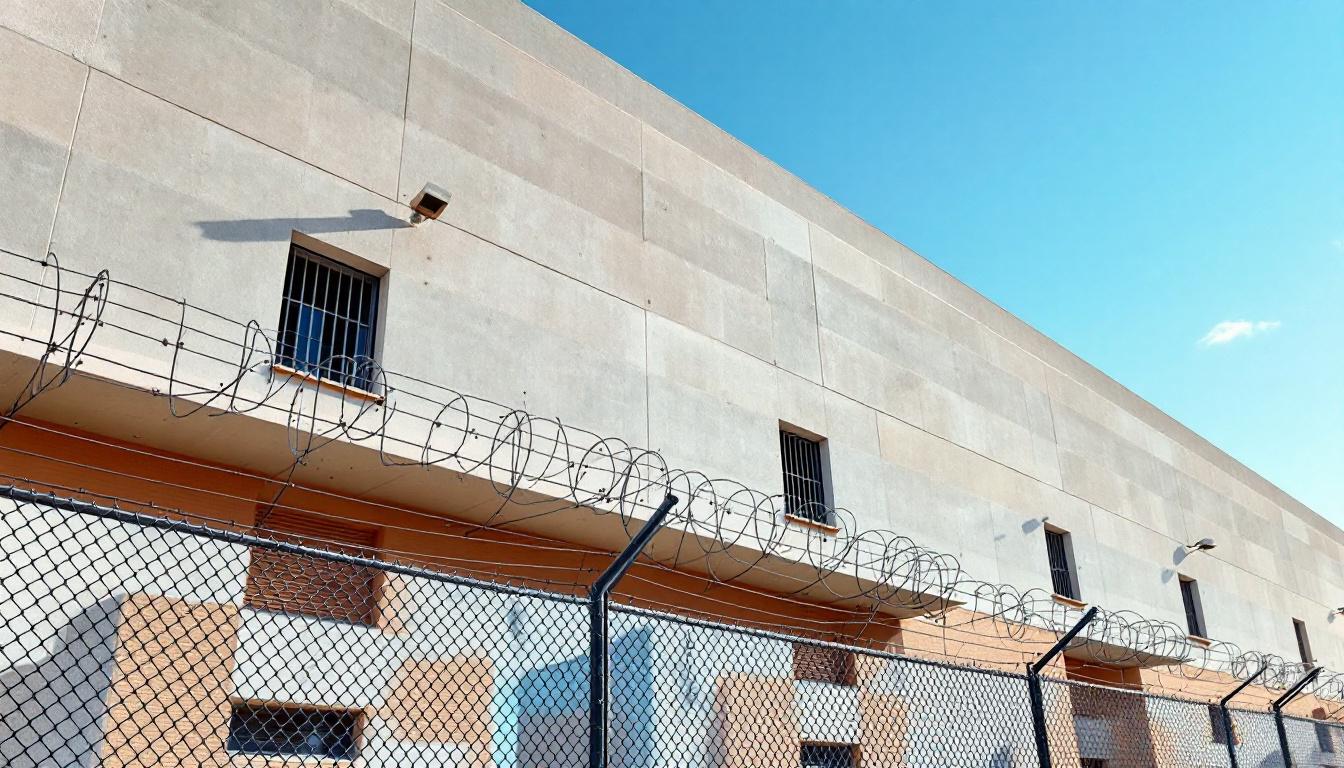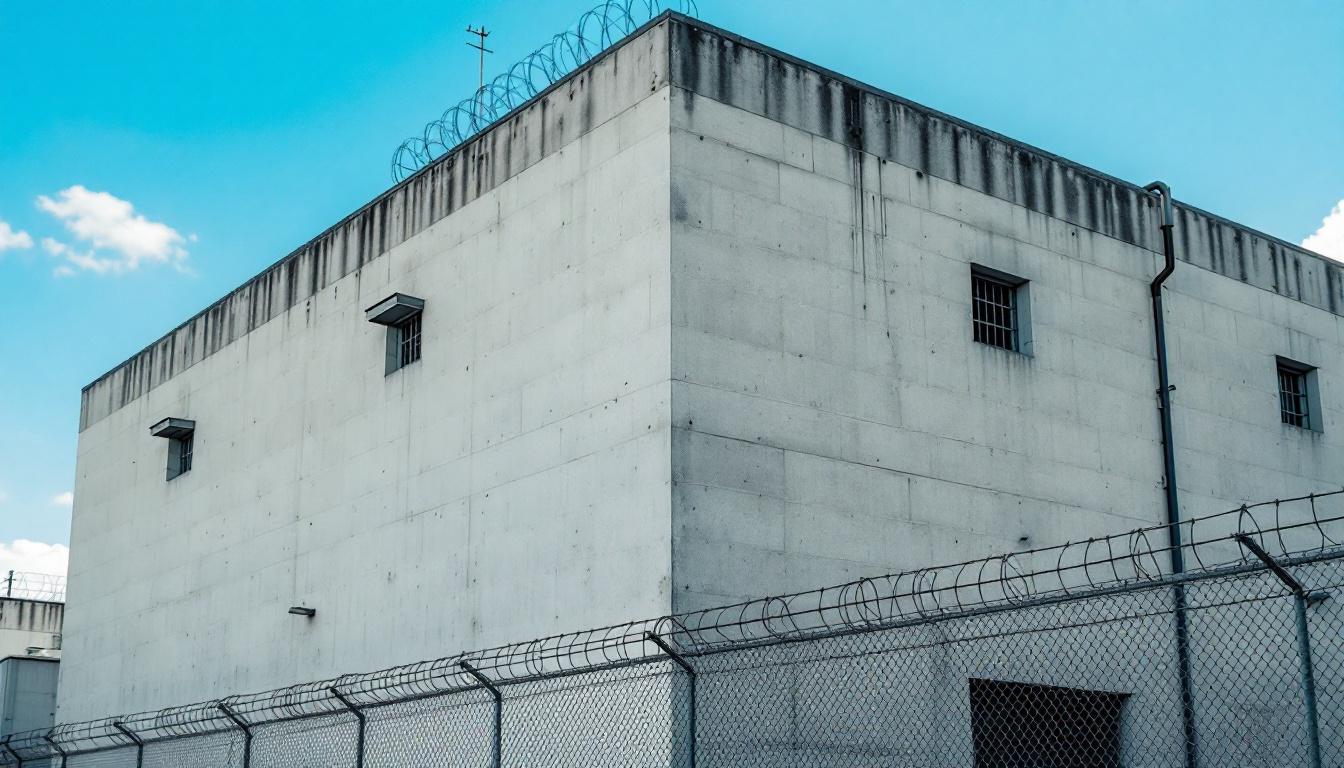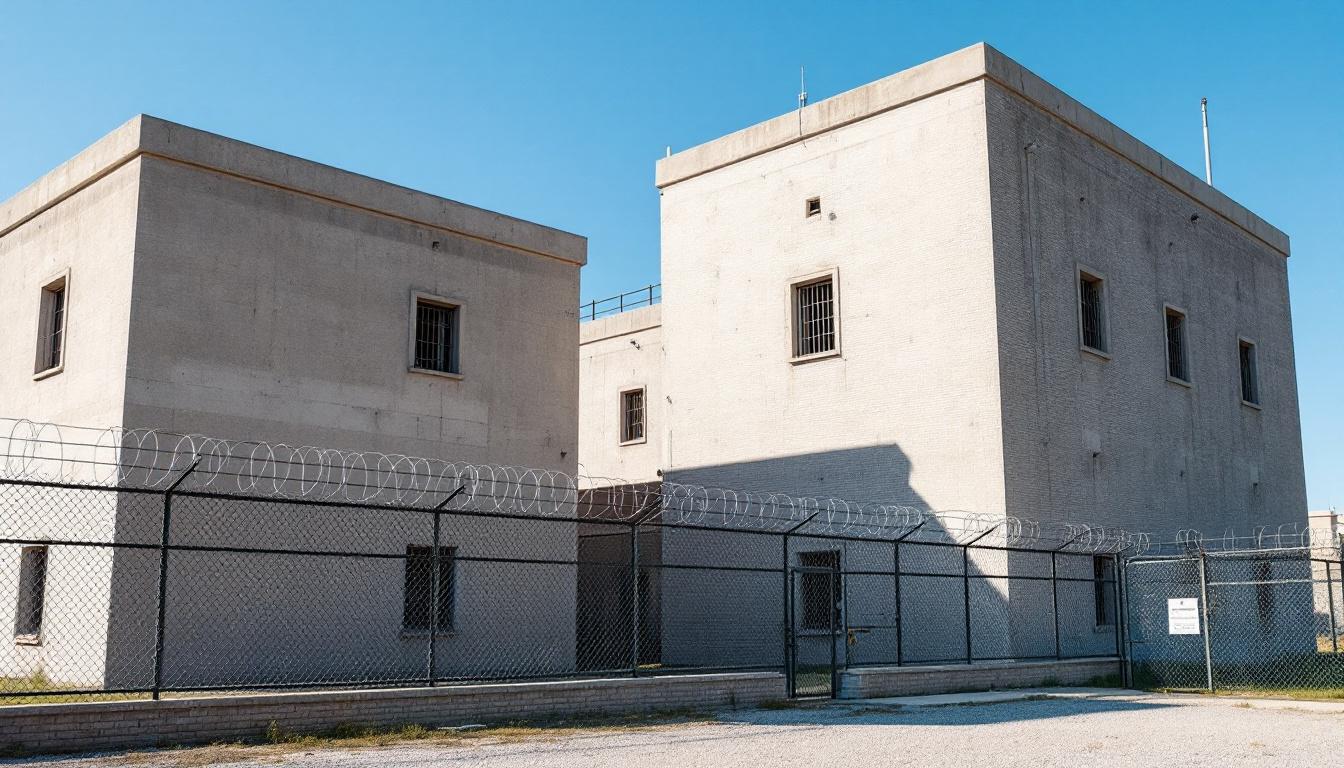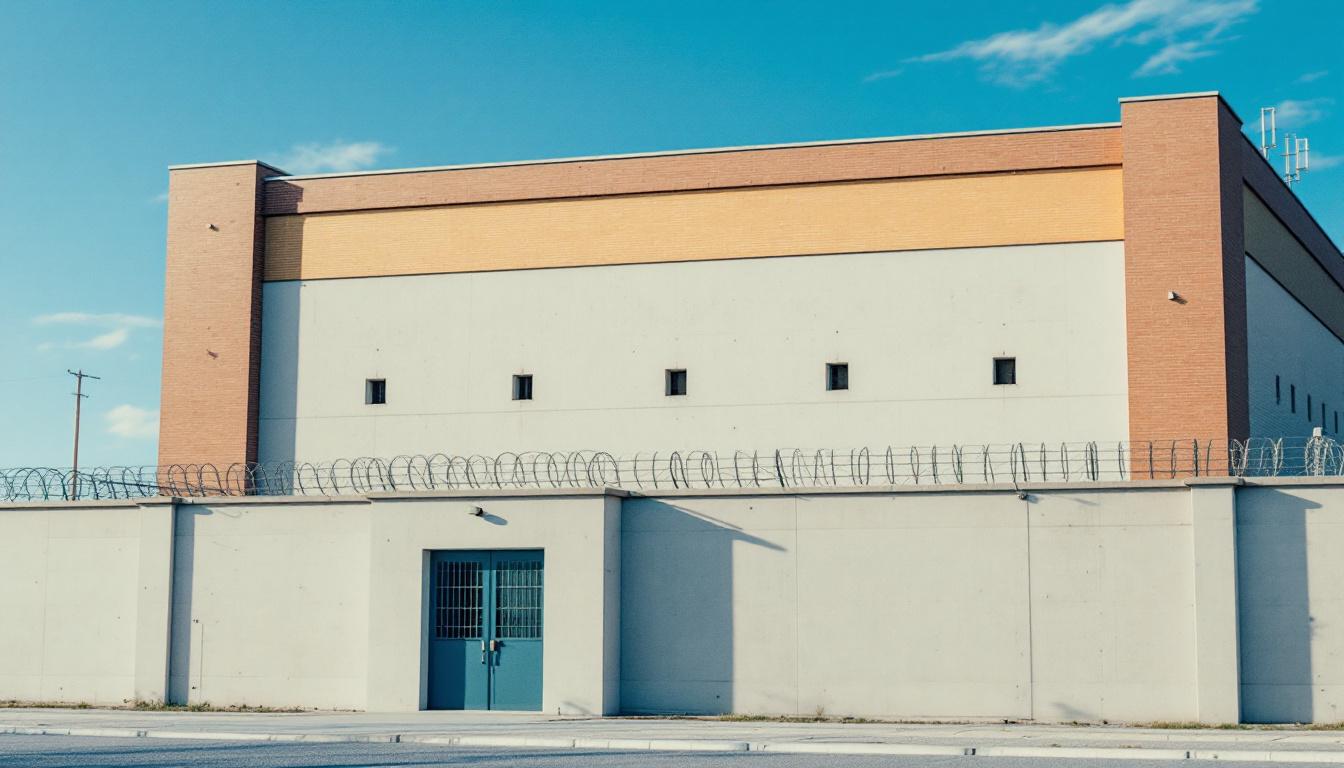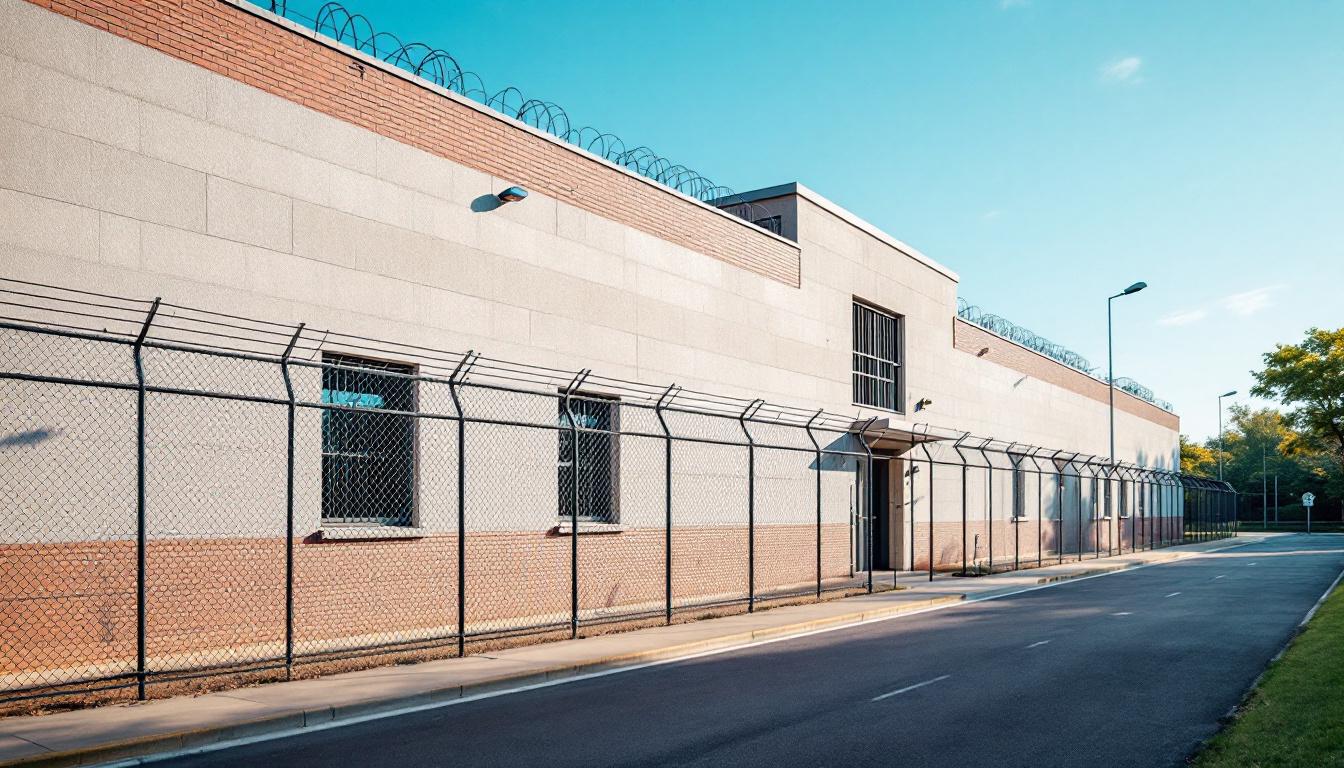
Quick Navigation
How to contact an inmate at Las Vegas Detention Center
This comprehensive guide will walk you through how to connect with an inmate at Las Vegas Detention Center. Follow the steps below to find an inmate and send letters and photos:
- Search for the inmate using our search tool below
- Create your account or log in to Penmate
- Write your message (up to 6,000 characters)
- Send instantly - inmates receive printed copies daily
Find an Inmate
Search for an inmate to start communicating today
Tip: You can search by first name, last name, or inmate ID number
To contact a person at Las Vegas Detention Center start by searching for the person on the official facility website. Perform a search by following these steps:
- Step 1: Enter their first name and last name into the search form and click "Search"
- Step 2: Locate their inmate record
- Step 3: Write down their Inmate ID and any housing information provided
Important! Be sure to enter the person's full name. Nicknames should not be used.
How to Send Messages to Inmates

You can use your phone or computer to send emails, letters, and photos to an inmate. Messages are sent electronically to inmate tablets or kiosks at the facility. If you would like to send a message, start by searching for an inmate at Las Vegas Detention Center.
Sending Photos and Postcards

A great way to send love and support to a loved one at Las Vegas Detention Center is to send photos and postcards. It only takes a few minutes to send photos from your phone and it makes a huge difference. You can also mail postcards with words of support and inspiration, or design your own postcard for special moments like birthdays and holidays.
Important! Be sure not to send any explicit photos or they may not be approved by the facility. You can also use a photo printing app like Penmate to make sure your photos are printed at the correct size (4x6 or 3x5) and are mailed according to the rules and regulations of Las Vegas Detention Center.
Frequently asked questions about Las Vegas Detention Center
-
How long does it take to deliver a message?
If you're sending an email message your letter is usually delivered within 24-48 hours. For messages sent via mail you should expect delivery within 3-7 days. All messages will need be approved by Las Vegas Detention Center.
-
How much does it cost to send a message to Las Vegas Detention Center?
You can send a message free using your phone or mail a message via USPS for the price of a $0.60 stamp and envelope. You can also purchase credits or e-stamps from services starting at $1.99.
-
What services can I use to contact an inmate at Las Vegas Detention Center?
Penmate
You can use Penmate to send letters and photos to an inmate from your phone. It's an easy way to stay in touch during your loved one's incarceration. Use the inmate locator to find an inmate's location and contact information, then you can send messages within a few minutes.
Securus messaging
Securus may be another option for communicating with an inmate at Las Vegas Detention Center. You can create a friends and family account and purchase credits to send messages. All messages will be reviewed and must be approved by the facility.
JPay
Some county jails and state prisons may support sending messages with JPay. You must register an account with the system, find your loved one, and purchase stamps to send messages. For some locations you can also attach photos.
Smart Jail Mail
You may also check if Smart Jail Mail is available at Las Vegas Detention Center. Smart Jail Mail is operated by Smart Communications and has contracted with some state and county jails. After purchasing credits, your messages and photos are sent to the facility, printed out, and then handed out to your loved one.
-
What is the mailing address of Las Vegas Detention Center?
Mailing address:
Las Vegas Detention Center
3300 Stewart Ave
Las Vegas, NV 89101
Phone: (702) 229-6444Business hours:
- Monday: Open 24 hours
- Tuesday: Open 24 hours
- Wednesday: Open 24 hours
- Thursday: Open 24 hours
- Friday: Open 24 hours
- Saturday: Open 24 hours
- Sunday: Open 24 hours
-
What are the visiting hours at Las Vegas Detention Center?
Visiting hours at Las Vegas Detention Center vary by housing unit and security level. Generally, visits are scheduled on weekends and holidays, with some facilities offering weekday visits. Contact the facility directly at (702) 229-6444 or check their website for the current visiting schedule. Visits typically last 30-60 minutes and must be scheduled in advance.
-
What items are prohibited when sending mail to Las Vegas Detention Center?
Prohibited items typically include: cash, personal checks, stamps, stickers, glitter, glue, tape, staples, paperclips, polaroid photos, musical or blank greeting cards, hardcover books, magazines with staples, and any items containing metal or electronics. Only send letters on plain white paper with blue or black ink. Photos must be printed on regular photo paper (no Polaroids). Always check with Las Vegas Detention Center for their specific mail policies.
-
How do I send money to an inmate at Las Vegas Detention Center?
You can send money to an inmate at Las Vegas Detention Center through several methods: 1) Online using JPay, Access Corrections, or the facility's approved vendor, 2) Money orders mailed directly to the facility with the inmate's name and ID number, 3) Kiosks located in the facility lobby, or 4) Over the phone using a credit or debit card. Fees vary by method, typically ranging from $2.95 to $11.95 per transaction.
-
Can I schedule a video visit with an inmate at Las Vegas Detention Center?
Many facilities now offer video visitation as an alternative to in-person visits. At Las Vegas Detention Center, video visits may be available through services like Penmate, Securus Video Connect, GTL, or ICSolutions. Video visits typically cost $10-20 for 20-30 minutes and must be scheduled in advance. You'll need a computer or smartphone with a camera and reliable internet connection. Contact the facility for their specific video visitation policies and approved vendors.
-
What identification do I need to visit an inmate at Las Vegas Detention Center?
All visitors must present valid government-issued photo identification such as a driver's license, state ID, passport, or military ID. Minors must be accompanied by a parent or legal guardian who can provide the minor's birth certificate. Some facilities require visitors to be on the inmate's approved visitation list, which may require a background check. Contact Las Vegas Detention Center for specific ID requirements and visitor approval procedures.
-
How can I find out an inmate's release date?
To find an inmate's release date at Las Vegas Detention Center, you can: 1) Use the online inmate search tool if available, 2) Call the facility's records department, 3) Contact the inmate's case manager or counselor, or 4) Have the inmate provide this information during a call or visit. For privacy reasons, some facilities only release this information to immediate family members.
Facility Overview
Contact Information
Las Vegas Detention Center3300 Stewart Ave
Las Vegas, NV 89101
Phone: (702) 229-6444
Official Website

About Las Vegas Detention Center
Nestled within the vibrant entertainment capital of Nevada, the City of Las Vegas Detention, NV serves as a cornerstone facility supporting the state’s broader correctional mission in the mountain region. This NV correctional facility has evolved alongside Las Vegas’s growth, adapting to meet the changing needs of both the community and those in its care. The detention center typically emphasizes rehabilitation-focused approaches that align with Nevada’s commitment to reducing recidivism while maintaining public safety throughout the Las Vegas metropolitan area.
The facility generally provides residents services designed to address the underlying factors that may contribute to criminal behavior, often including educational opportunities, substance abuse counseling, and vocational training programs. These initiatives typically work in coordination with Nevada’s statewide correctional goals, helping prepare individuals for successful reintegration into the Las Vegas community upon release. The detention center may also offer mental health support services and life skills development programs, recognizing that comprehensive rehabilitation often requires addressing multiple aspects of an individual’s circumstances and needs within the comprehensive context of Nevada’s desert urban environment.
Programs & Services
Educational services form the foundation of rehabilitation initiatives at City of Las Vegas Detention, with residents accessing opportunities that address both immediate learning needs and long-term personal development goals. The facility typically operates under a philosophy that combines skill-building with therapeutic support, recognizing that successful reintegration often depends on addressing multiple areas of a person’s life simultaneously. Residents may participate in initiatives designed to build confidence while developing practical abilities that support their transition back into the community.
Academic programming often includes basic literacy instruction, GED preparation, and computer skills training that help residents advance their educational foundation. Job readiness training may deliver practical workplace skills, including resume writing, interview preparation, and professional communication techniques. Furthermore, vocational programs typically focus on trade skills and certification opportunities that align with local employment markets, giving residents concrete pathways to economic stability upon release.
Therapeutic initiatives address underlying issues that may have contributed to criminal behavior, with substance abuse treatment programs offering both group and individual counseling sessions. Anger management courses typically teach residents healthy coping strategies and conflict resolution techniques they can apply in various life situations. Furthermore, support services may include parenting classes that help residents strengthen family relationships and healthy relationship workshops that focus on building positive interpersonal skills. These combined initiatives often work together to address the complex challenges residents face while preparing them for successful community reintegration.
Daily Life & Visitation
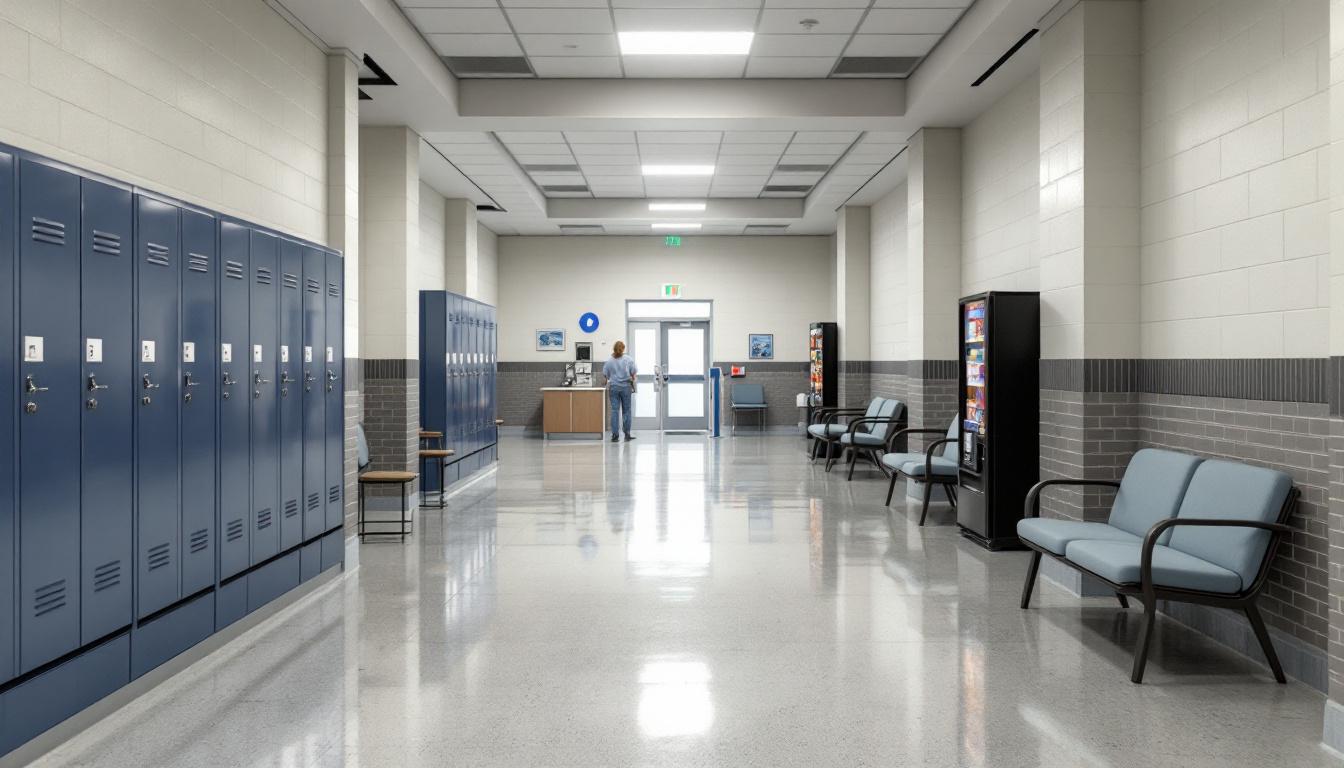
Structured routines now anchor each day with predictable schedules that residents can rely on. Wake-up calls typically occur in the early morning hours, followed by scheduled meal times, work assignments, and recreational periods that deliver consistent framework throughout the week. Count times occur regularly, ensuring accountability while maintaining the orderly flow of daily activities.
Housing units generally accommodate multiple residents in dormitory-style or cell arrangements, with personal property allowances that may include basic hygiene items and approved clothing. Furthermore, residents typically receive three meals daily in designated dining areas, with menu options that meet basic nutritional requirements. The commissary system usually operates on scheduled days, allowing residents to purchase additional food items and personal supplies when funds are available through their accounts.
Although movement throughout the facility requires supervision, residents often participate in recreational activities that may include television viewing, reading materials, and outdoor exercise periods when weather permits. Work assignments typically deliver structure while providing residents with purposeful daily activities, ranging from kitchen duties to facility maintenance tasks. Programming schedules generally include educational opportunities and life skills classes that support personal development. Visitation policies usually allow family members to maintain contact through scheduled visits and phone calls, helping residents preserve important relationships during their time at the facility.
Ready to Connect?
Start communicating with your loved one today
Search for an Inmate
